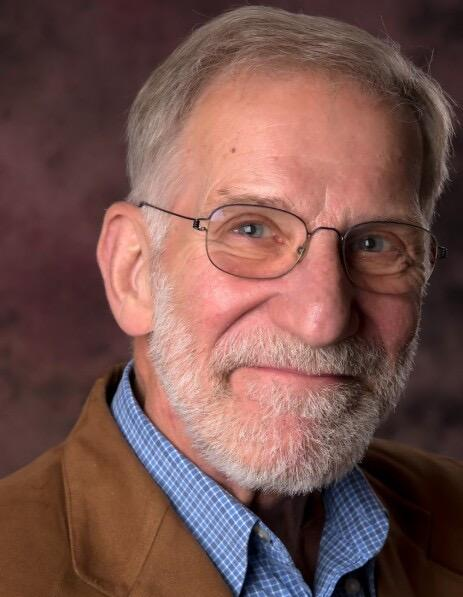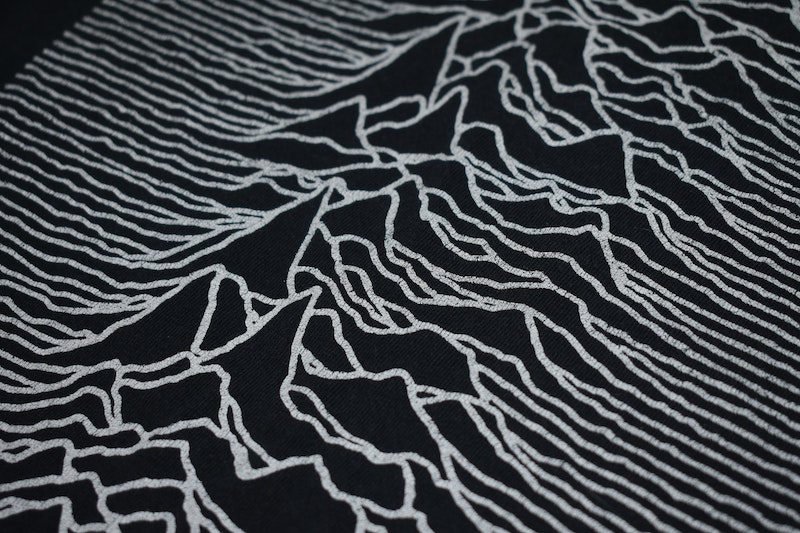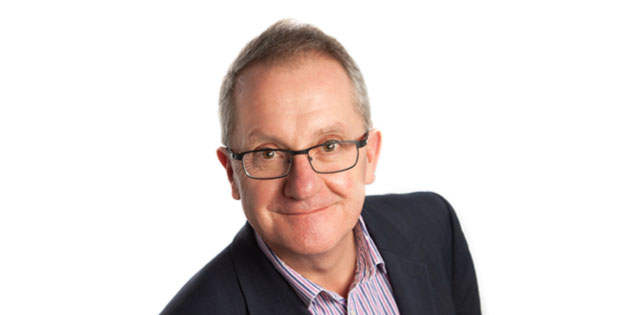Industry News
Hans Kunov (1938 – 2022)
(Affectionately Known As “The Great Dane” or TGD)

Hans died peacefully at home on June 4, surrounded by family and friends,
Hans was born and educated in Denmark where he completed his doctoral studies in electrical engineering. He showed an early interest in what was then the emerging field of biomedical engineering and left Denmark for Canada in 1967, where he was offered a professorship at the University of Toronto’s newly established Institute of Biomedical Engineering (IBME). He spent the rest of his career teaching and researching at the Institute, which he headed from 1989 to 1999. Hans retired in 2003, but continued to teach, mentor, and act as a senior resource for engineering students for the capstone design course. He used to say, “I love dealing with young, intelligent, curious students. One of Hans’ most important talents was to foster doctoral level engineering students and many have gone on have successful academic careers in various communication disorders and engineering departments. Among his graduates are Dr. Christian Giguère (University of Ottawa), Dr. David Purcell (Western University), Dr. Ewen MacDonald (University of Waterloo), and Dr. Hilmi Dajani (University of Ottawa).
I had many personal and professional interactions with Hans and his wife Clare during the 1980s and 1990s. He was among the first to seriously study complex multi-frequency impedance and his lab designed hardware and wrote software to accomplish this. And Hans was the person who first delineated the physics behind negative deflections that occasionally occur with ipsilateral acoustic reflexes while working with Poul Madsen (https://hearingreview.com/practice-building/practice-management/remembering-poul-b-madsen-1923-1997) the founder of Madsen Electronics. And while working with Yuri Sokolov, Hans helped establish technologies in OAEs which later became the company, Vivosonic.
Above all, Hans was a man of wise counsel, a pragmatic philosopher of life who reflected much about the meaning of life and attached great importance to moral and ethical behaviour. His last assignment at U of T was as Dean’s Designate on Academic Offenses for the Faculty of Engineering - a task he particularly enjoyed.
Like the Viking he was, TGD was always courageous, stoic, lucid, and “matter of fact” when dealing with the many health issues he faced. He remained so until the end.
Information provided by Clare Kunov with input from Marshall Chasin
Memories of Prof. Hans Kunov
From Alberto Behar
I first met Hans at meetings of the Toronto Chapter of the Canadian Acoustical Association that Tim Kelsall and I founded in the late 1980s. He used to attend our meetings although we didn’t manage to have him as a speaker.
Beginning in 1990, I left Ontario Hydro and was looking for a place where I could continue my research in Hearing Protection. Particularly, I was interested in double protection. I knew of the Acoustical Lab that Hans had at University of Toronto and of the artificial head developed by himself and Christian Giguère. So, I approached Hans to ask if he would allow me to do my research at his place. His answer was an enthusiastic “Yes” and I became a member of the Lab.
It was a very satisfactory association for me, since Hans gave me complete freedom to do my work. His approach was “go ahead” that he applied also to his students: he was very much for the freedom of initiatives as a way of promoting progress.
We worked on different subjects such as measurement of noise exposures of orchestra musicians and of high school music teachers, attenuation of hearing protectors and on the development of CSA standards.
Our association ended when Hans had to take his mandatory retirement in 2003. We had a huge retirement party, where among others Dr. Willy Wong (who took over Hans’ Lab), his wife and I performed Bach concerto for two violins. There was also a speech that a friend translated in Danish and I read (phonetically) pretending that I knew the language. The startled look on Hans’s face when I start reading was something that I will never forget…
Rest in peace Hans, we will never forget you!
Editor's Note: Many of Hans' previous students have added their own reminiscences about being a student in Hans' laboratory and these comments can be found at https://obituaries.basicfunerals.ca/obituary/Hans-Kunov
Audiology mourns the passing of tinnitus "titan" David Baguley
Obituary: Published on 16 June 2022
The UK audiology community was shocked and saddened Wednesday (June 15) at the announcement by NIHR Nottingham Biomedical Research Centre of the death of its Clinical Hearing Sciences Group lead, Reverend Professor David Baguley.
Messages of condolence and tribute from friends, colleagues, institutions, and professional bodies have flowed through Twitter and social media accounts, attesting the popularity and influence of Prof. Baguley as a researcher, teacher, and much-loved person. His experience and expertise in hearing sciences, particularly over 35+ years in the field of tinnitus, made him a reliable authority acknowledged as impacting careers and knowledge.
See below for a full obituary and tribute written by colleagues of Prof. Baguley.
But Prof. Baguley will also be remembered by many as a communicator with the rare talent of being able to synthesise and impart learning with an optimally magnetic blend of clarity, humility, enthusiasm, and spot-on humour. For this reason also, his presence was keenly sought for presentations in seminars congresses, and debates.
Prof. Baguley read for his PhD in Physiology of tinnitus at the University of Cambridge (2001-2005), and in 2005 at the same centre for his PhD in Tinnitus. For more than 31 years, he had worked from 1985 as Director of Audiology and Consultant Clinical Scientist (Audiology) at Cambridge University Hospitals NHS Foundation Trust.
From 2010 to 2019, he was Visiting Professor in Audiology at Anglia Ruskin University, while for some of these years (2011 to 2017) he also had a self-supporting, part-time role as Associate Minister at St. Martin's Church, Sherwood, Nottingham.
Prof. Baguley's close association with the British Tinnitus Association saw him hold the post of President of this leading Sheffield-based UK charity from 2015 to 2019.
Wide-Ranging Research
In recent years (since 2016), his work as Professor of Hearing Sciences at the University of Nottingham involved him deeply in research, his study output increasing to impressive proportions. Since January 1, 2021, the name of David Baguley has appeared on no fewer than 24 papers published in leading journals covering hearing, otology, respiratory medicine, neuroscience, psychiatry, and cancer. The breadth of his recent investigational activities included tinnitus - he lead the publication of the International Vocabulary of Tinnitus - Covid, hyperacusis, cognitive and mental health, chemotherapy, ototoxicity, and cochlear implants.
In addition to his research work, Prof. Baguley was a go-to authority for journals and media publications within and beyond audiology. He had an advisory role with the Journal of Laryngology and Otology, and was a former audiology editor and specialist advisor to ENT & Audiology News. He was regularly consulted on hearing issues by Audiology Worldnews and Audio Infos UK, most recently on the cost to research of Covid restrictions, and the value of biobanks to hearing and tinnitus.
Baguley, Music Lover
Prof. David Baguley was a passionate music lover, particularly revering the Manchester-based band Joy Division, central figures of a post-punk rock scene about which this leading academic could happily and engagingly wax lyrical for many pleasant hours.
Professor David Baguley will be sorely missed by the UK and global audiology sphere. Among the many early tributes to him on social media, he has been called "an absolute titan in audiology", "a smashing person to work with", and "inspiring lead". Many of those lamenting his passing have underlined his humour and humanity.
© Julia Morales - Unsplash
The spiritual and inventive rock music of Joy Division was a favourite cultural retreat for Prof. David Baguley.Audiology Worldnews and Audio Infos UK extend our condolences to the family and friends of Prof. David Baguley.
May his memory and legacy live long and strong.
OBITUARY – DAVID M. BAGULEY
18-03-1961 to 11-06-2022
Kevin J Munro, Michael A Akeroyd, Judith C Bird, With grateful thanks for contributions from colleagues and friends
The sudden and tragic death of David (Dave) Baguley has left a gap within the national and international audiology and hearing science community.
A Mancunian and lifelong supporter of Manchester City football club, he was awarded a BSc in psychology, 1983, then a MSc in clinical audiology, 1985, both from the University of Manchester. His first post was Scientific Officer in the MRC Institute of Hearing Research, Cardiff. One year later, he moved to the NHS, working as a clinical scientist in audiology at Addenbrooke’s Hospital, Cambridge. Dave remained in Cambridge for over 30 years, transforming the small NHS audiology team into a comprehensive assessment and rehabilitative centre of excellence. He cared diligently for his patients, many of whom continue to enquire of him fondly.
While in Cambridge, he rose to consultant status and latterly head of audiology services and cochlear implants. During this time, he was awarded an MBA (distinction), a PhD on physiological mechanisms of tinnitus in vestibular schwannoma, and a diploma in pastoral theology. He built a formidable international reputation as a leading expert in tinnitus and hyperacusis, publishing prolifically on the subject and receiving referrals from all over the country. This was in no small part due to his empathic approach to his patients. His generosity of spirit and his enquiring mind made him the ideal mentor for a whole generation of young skull base surgeons training in Cambridge and leaves a lasting legacy in skull base centres across the world. The respect afforded him amongst the ENT community meant he was a regular attender at the Otology section of the Royal Society of Medicine and the UK’s leading ENT conference, the British Academic Conference in Otolaryngology. He contributed enormously to improvements in the care of patients with tinnitus and hyperacusis in departments across the UK. He also published leading work on audiovestibular dysfunction in patients with vestibular schwannomas, and his support for such patients was often acknowledged by the British Acoustic Neuroma Association whose members found his insight into the challenges they face invaluable.
In 2016, Dave relocated to the University of Nottingham, where he took up the position of Professor of Hearing Sciences within the School of Medicine’s Division of Clinical Neuroscience investigating hearing loss and tinnitus, including associations with platinum-based chemotherapy. He was Deputy Lead of the Hearing Theme in the Nottingham NIHR Biomedical Research Centre and co-investigator on a current clinical trial on following-up and monitoring of new adult hearing aid users, funded by the Health Technology Assessment.
Dave was a passionate and gifted scientist, confident and sure in his research; for many of us, he was the ‘go-to person' for the latest research findings. He published around two hundred scientific articles and two books, most recently "Living with Tinnitus and Hyperacusis." He was a five-time winner of the Marie and Jack Shapiro prize from the British Tinnitus Association, and won the Norman Gamble Research Prize from the Royal Society of Medicine Section of Otology, the TS Littler Prize of the British Society of Audiology, and the International Award in Hearing of the American Academy of Audiology.
Dave was a voracious reader and an innovative thinker. He managed to bridge professional boundaries, connecting people with overlapping interests and linking ideas and clinical strategies from different specialisms. He was one of the few who comfortably straddled audiology, ENT and hearing science communities, exchanging insights and perspectives. His clinical background, and ongoing, clinical consultations, meant he developed a clear line of sight from discovery research through to patient benefit.
He was much in demand as a speaker on tinnitus and audiology courses around the world, with an eloquent, relaxed, and easy style - plus the ability to give a thoughtful response to questions from the floor. He was able to combine art and science, often incorporating literary references into his presentations.
Throughout his career, he worked with impressive efficiency and juggled commitments at local and national level. He invested time in supporting and promoting the profession. He served the British Society of Audiology as Chair, 2009-2011, and was editor of the British Journal of Audiology (now International Journal of Audiology) from 1995-2000. He helped establish the British Academy of Audiology, co-chairing the inaugural conference in Manchester, 2004. Dave joined the Editorial Board of what was then called ENT News in 2008. He worked tirelessly to source material of the highest academic calibre. He used his charm and wit to campaign fiercely so that audiology content would have equal coverage in the magazine and was instrumental in inserting the word ’Audiology’ into its title, becoming the current ENT & Audiology News. He was president of the British Tinnitus Association, 2015-2019.
Dave earned an international reputation as an audiologist and hearing scientist. As evidence, he played an important role in the formation of the international committee of the American Academy of Audiology, serving as co-chair for three years. In 2006, Dave won the prestigious American Academy of Audiology International Award for Hearing. His global influence on education of audiologists, and the patients they serve, was also evidenced by multiple clinically oriented articles in the The Hearing Journal and, in later years, online continuing education websites such as AudiologyOnline. Dave single-handedly inspired untold numbers of audiologists in the US to become involved in the assessment and management of persons with bothersome tinnitus and/or hyperacusis.
Occasionally perceived as self-important, Dave’s outstanding people skills, charm and wit quickly pushed that aside. He was always dependable, considered and thoughtful. An early adopter of social media, he used it effectively to share his research findings. He commanded a large network of contacts and collaborators throughout the world and spanning many disciplines. He could comfortably put people at ease, with humility and care for others. He was calm, gentle, warm, thoughtful, insightful and supportive. Dave could listen attentively with incredible insight. Many individuals acknowledge the support he has given when they were in difficult personal circumstances. He could recognise potential and found ways of harnessing talent often when people had approached audiology in unconventional routes. He was an enthusiastic mentor to many, willing to give advice and encouragement as junior staff explored career routes. He opened doors creating opportunities and encouraged development. He was a kind and respectful critic and deeply respected.
At his core, Dave was a man of deep Christian faith. He was ordained a Deacon in the Church of England in 2011 and Priest the following year. Called to ministry alongside his clinical role, his correct title, although rarely used by those who knew him, was Reverend Professor. He was Associate Minister at St Martins, Sherwood in Nottingham. Outside of work he was a great cook, a lover of live music events, a hill walker, an avid reader, enjoyed “shooting the breeze” with friends, spoke warmly and lovingly of his family, and indubitably possessed a remarkably eclectic collection of shirts.
He is survived by his wife Bridget, whom he married in 1989, and their two sons, Sam and Luke, and daughter, Naomi, all of whom he was immensely proud. The audiology and hearing science community remember each of them, and the extended family, at this time.
Source: University of Nottingham/Kevin J. Munro
Editor’s Note: This was received from the College of Audiologists and Speech-Language Pathologists of Ontario (CASLPO) but similar notices were also sent out by their sister associations in Alberta, Manitoba, Saskatchewan, and New Brunswick. This concerns a reciprocity agreement for Cross Provincial Practice (CPP):

As part of CASLPO’s work to eliminate barriers to patients seeking services across provinces, the College has developed an agreement with 4 other provinces to allow Cross Provincial Practice (CPP) of audiologists and speech-language pathologists. This new agreement takes effect on July 4, 2022!
What Provinces are included in the CPP Agreement?
CASLPO has forged the CPP agreement with the following provinces:
- Alberta College of Speech-Language Pathologists and Audiologists (ACSLPA)
- College of Audiologists and Speech-Language Pathologists of Manitoba (CASLPM)
- New Brunswick Association of Speech-Language Pathologists and Audiologists (NBASLPA)
- Saskatchewan Association of Speech-Language Pathologists and Audiologists (SASLPA
What does the CPP registration allow?
If a CASLPO General registrant, obtains a CPP registration in one of the participating provinces, they may provide services to patients in that “secondary” province. Those services may be:
- either virtually or in person
- for up to a maximum of 200 direct client/patient service hours
- in a 12-month period
- for a reduced fee
Who can apply?
CASLPO Audiologists and speech-language pathologists who are registered with a General Certificate (without terms, limits, or conditions and not in a CASLPO mentorship) may apply for a CPP registration in one or more of the other 4 participating provinces.
CASLPO registrants who want CPP registration in another participating province must contact the regulating body in that province.
Want to Learn more?
Have a look at:
Association of Adult Musicians with Hearing Loss (AAMHL) Annual Conference
https://www.musicianswithhearingloss.org/wp/2022-miniconference-schedule/
The registration fee will be $25 per person with access to recordings for 7 days after the conference is over.


